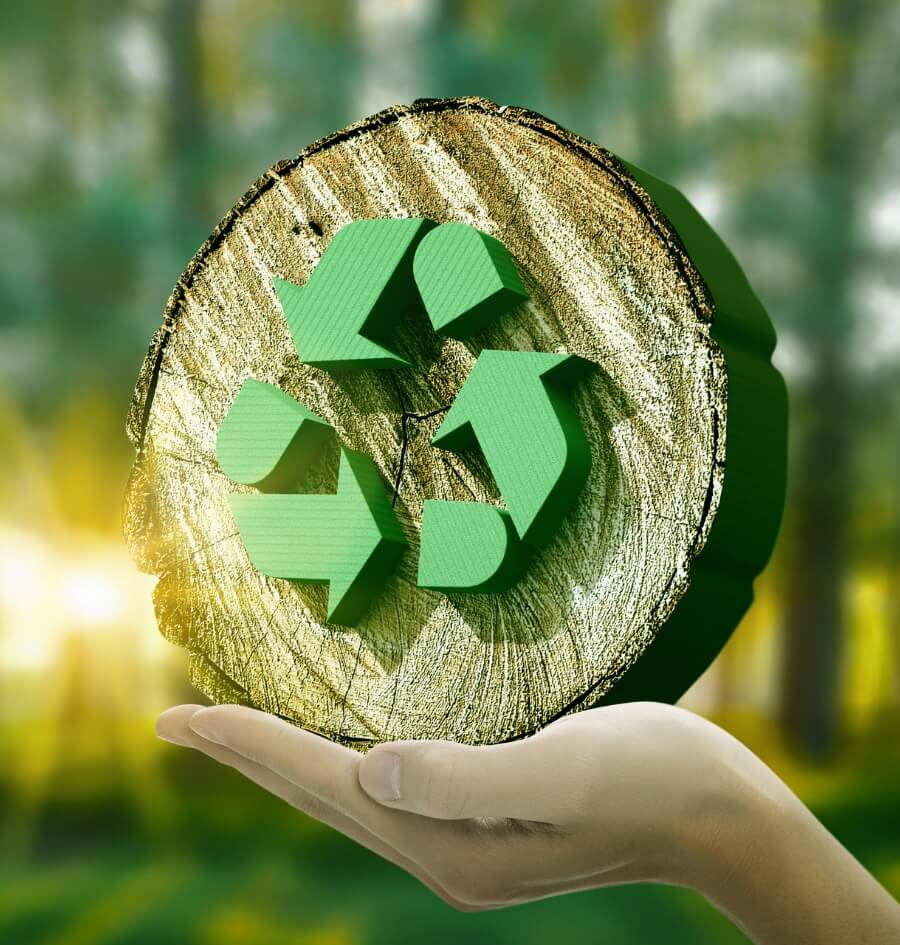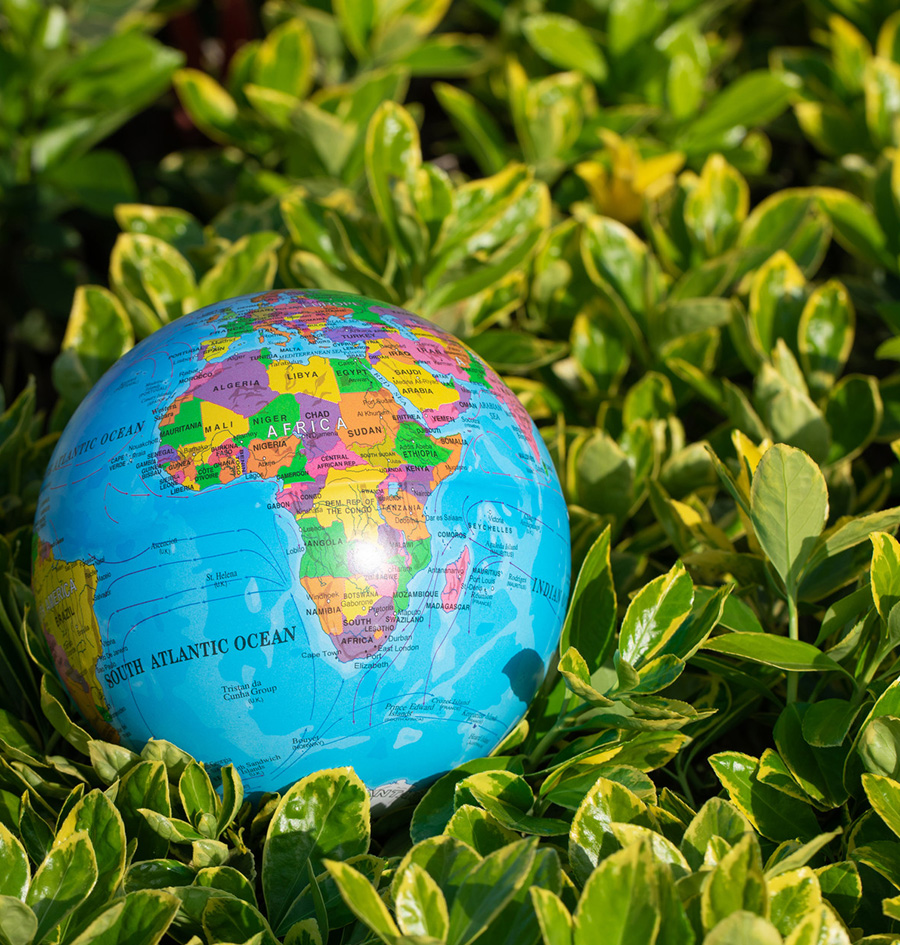This is an era in which mankind pursues green and advocates nature, making sustainable development a new call of our times. Being in this great era, we are allowed to depict a beautiful picture of sustainable development and let the world give ear to the voice of the textile industry for green with the care and support from industry associations and colleagues from all walks of life.
We uphold the circular economic development approach and formulate our strategies for sustainable development.
We energetically answer the call of the industry and actively carry out sustainable development practices.
We carry forward all-round ecological environmental protection and foster innovative, circular and inclusive development.
We effectively assume our social responsibility and organically unify our development goals with social development goals.

All material procurement and management at Yibin Grace is guided by the principle of responsible sourcing. Procurement is more than just obtaining goods and services for our use; it is also a responsibility to handle the risks linked with the environment, human rights, and ethics. Our commitment is to work in accordance with global environmental, social, and governance standards in order to maintain ancient and endangered forests, prevent deforestation, and promote biodiversity. We strive to achieve this by working with suppliers, civil society organizations, government and other stakeholders.
Yibin Grace has been sourcing raw materials at the core of the same strict criteria towards environment and sustainability. As part of the entire textile value chain, we positively undertake the due responsibility of sourcing, integrating sustainability into our operations and products to face the challenges of the industry.

Nowadays, climate change becomes a severe issue, all walks of life attach great importance to environmental issues. For the fashion industry, due to viscose’s unmatched credentials in terms of environmental and product features, it has a huge potential to propel sustainability in the sector. As a member of MMCF(Man-made Cellulosic Fibres), Grace is active in sustainability and innovation by constantly enhancing its manufacturing processes and setting new standards around the world. As a manufacturer of recycled cellulose fiber, Grace implements the best practices of the industry, increases investment in environmental protection, and realizes closed-loop production by strengthening the utilization of raw materials, reducing waste production, and reducing the emission of pollutants to the atmosphere and water production.
MORE >
Yibin Grace Co., Ltd. implements the concept of respecting and protecting human rights throughout the whole process of the Company’s human resources management, insists on protecting the legitimate rights and interests of employees, and provides employees with a broad development platform and opportunities, accompanies them to obtain growth sincerely, and jointly creates a brighter future with employees with comprehensive occupational health management, perfect training and development system, and care measures for employees.
MORE >
As one of the world's largest viscose filament production enterprises, Yibin Grace has a particular responsibility to help raise the bar for sustainability in the textile and nonwovens industries. Transparency and traceability are a prerequisite for fostering trust and building long-term relationships.
MORE >
Influenced by the popularity of fast fashion and the improvement of consumption level, a large number of waste cotton materials are produced around the world every year. Most of these waste cotton materials are buried or burned, with low use value, and lead to pollution. In addition, the domestic and foreign researches on the utilization of waste cotton materials are very extensive, such as waste cotton material to produce cotton yarn, manufacturing nonwoven products, carbon materials, cellulose derivative materials, etc., although these utilization value is high, but mostly difficult to large-scale or industrial processing of waste cotton materials, presenting low utilization characteristics. The preparation of dissolving pulp from waste cotton material is a new efficient and high value utilization method. In the pulping process of waste cotton material, it is necessary to separate the non-fiber foreign matter in waste cotton material. After the dissolved pulp is made, the industrial production of recycled cellulose fiber filament can be realized by using the traditional bio-based fiber process, which greatly reduces the natural cotton / wood consumption, and improves the recycling efficiency of cellulose. It is very environmentally friendly and in line with the concept and requirements of sustainable development.
MORE >
Since President Xi Jinping made a solemn commitment to the international community during the general debate of the 75th United Nations General Assembly, he confirmed that our country’s mission was to reach the emission peak in 2030 and carbon neutrality in 2060. From then on, emission peak and carbon neutrality have quickly become the focus of all walks of life in China. One of humanity’s essential needs is a healthy environment to live in. In the face of the urgency of tackling global climate change, many countries have also upgraded their national self-help contribution goals on the basis of the 2010 Paris Agreement. Against the backdrop of the global shift to low-carbon, green and sustainable development, global carbon reduction is both a pressure and an opportunity for both countries and enterprises. Climate change has become an important issue for the sustainable development of global industry and commerce, and the carbon footprint assessment is the first step for companies to take conscious actions to tackle global warming. Carbon footprint, which indicates the total set of greenhouse gas (GHG) emissions caused by an organization, event, product or person. "Carbon" is the natural resources composed of carbon elements, such as oil, coal and wood. The more carbon we consume, the more carbon dioxide which is the main culprit of earth warming we have. We know that everything has its own carbon footprint, and can be measured in different ways, but it's not just about carbon dioxide (although it's most common compared to other greenhouse gases), other greenhouse gases include (but not limited to): methane, ozone, nitrous oxide, sulfur hexafluoride, hydrofluorocarbons, perfluoro and chlorocarbons, etc.
MORE >

Please email to sdr@cn-grace.com and we will send the report to you via email.